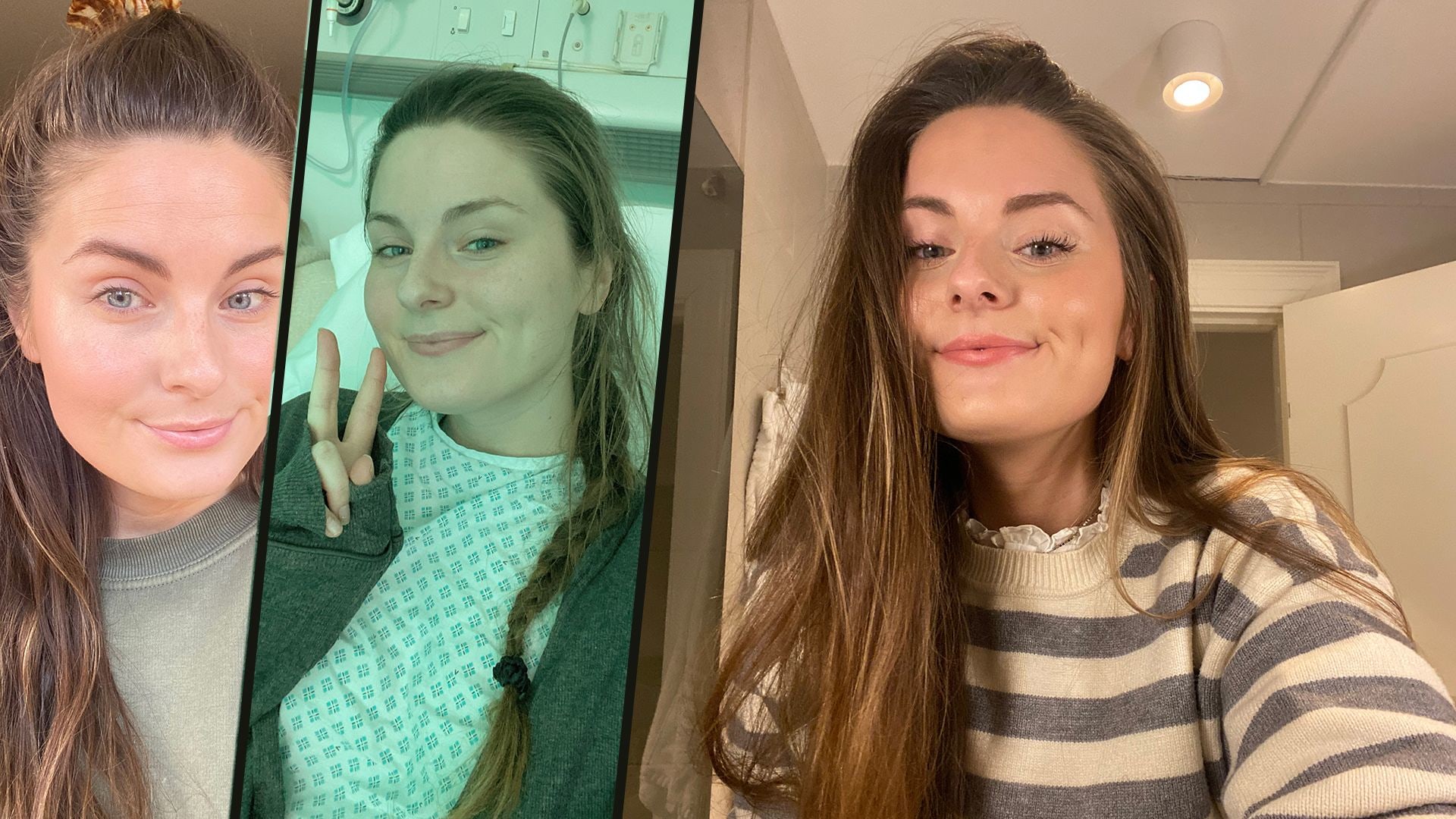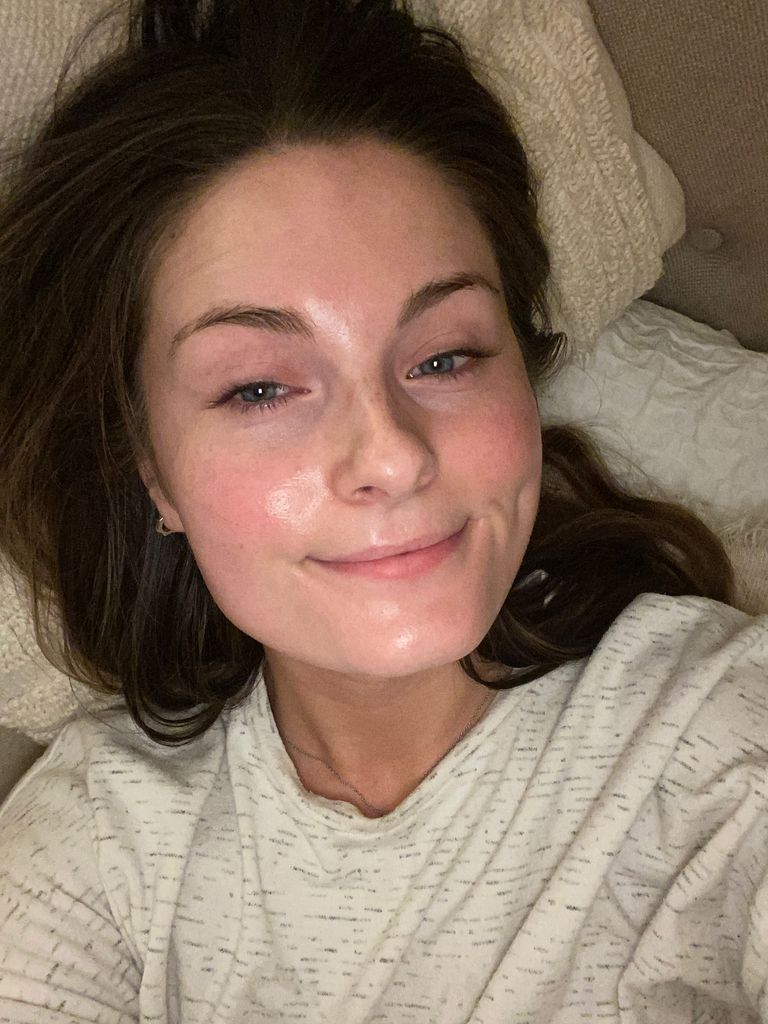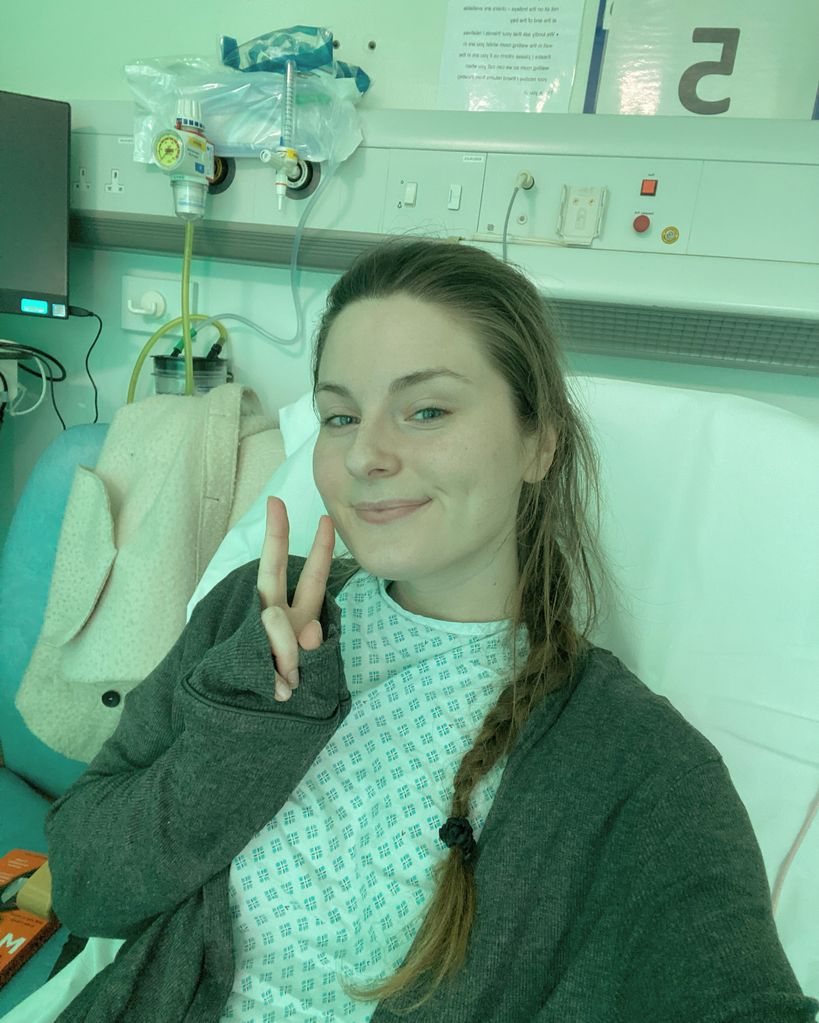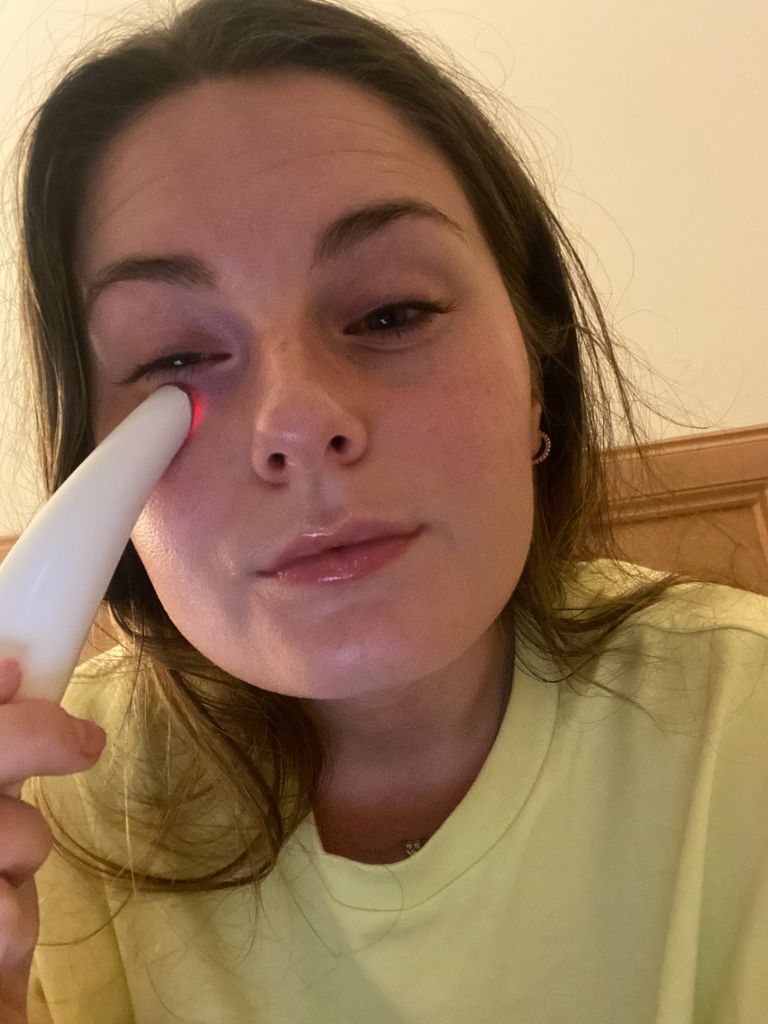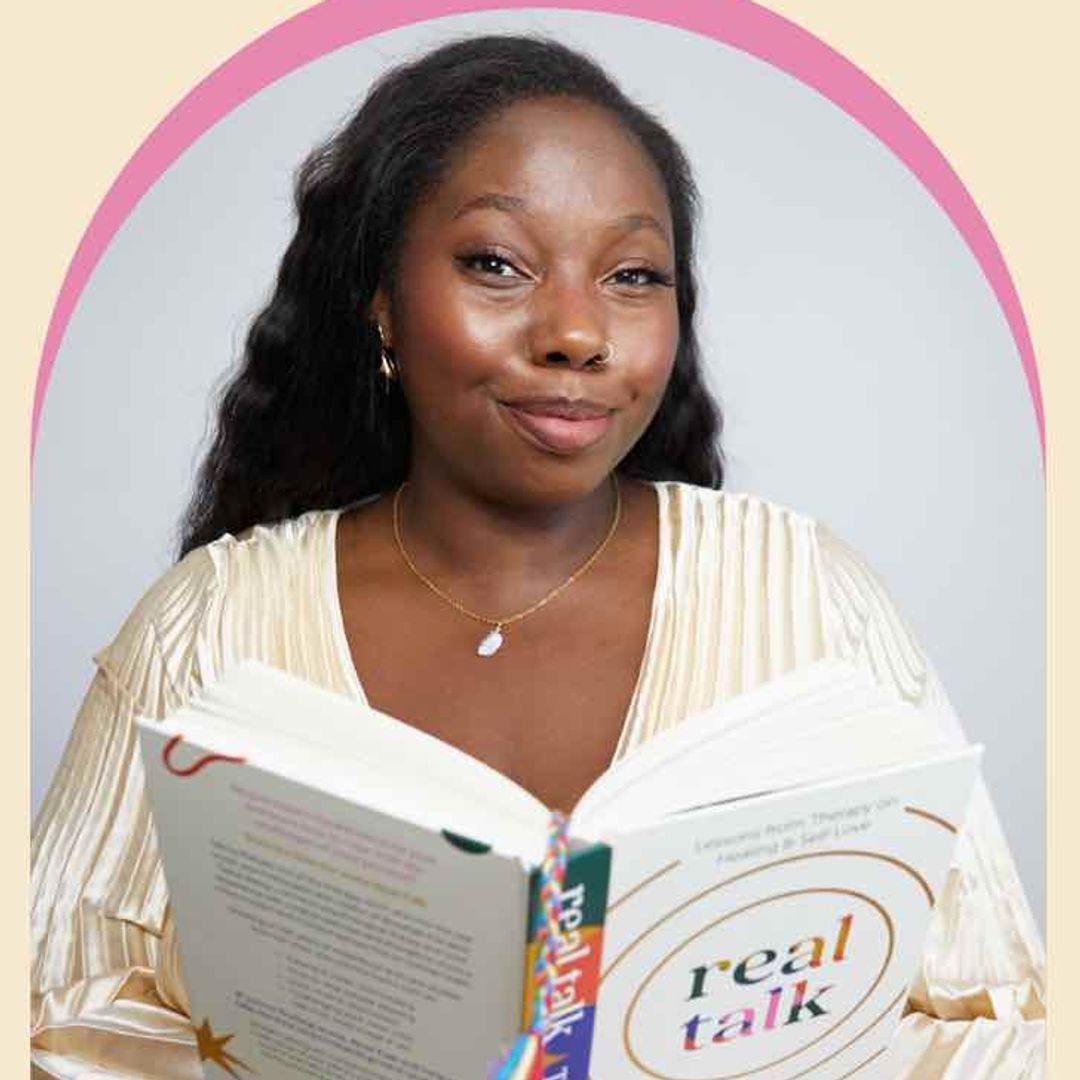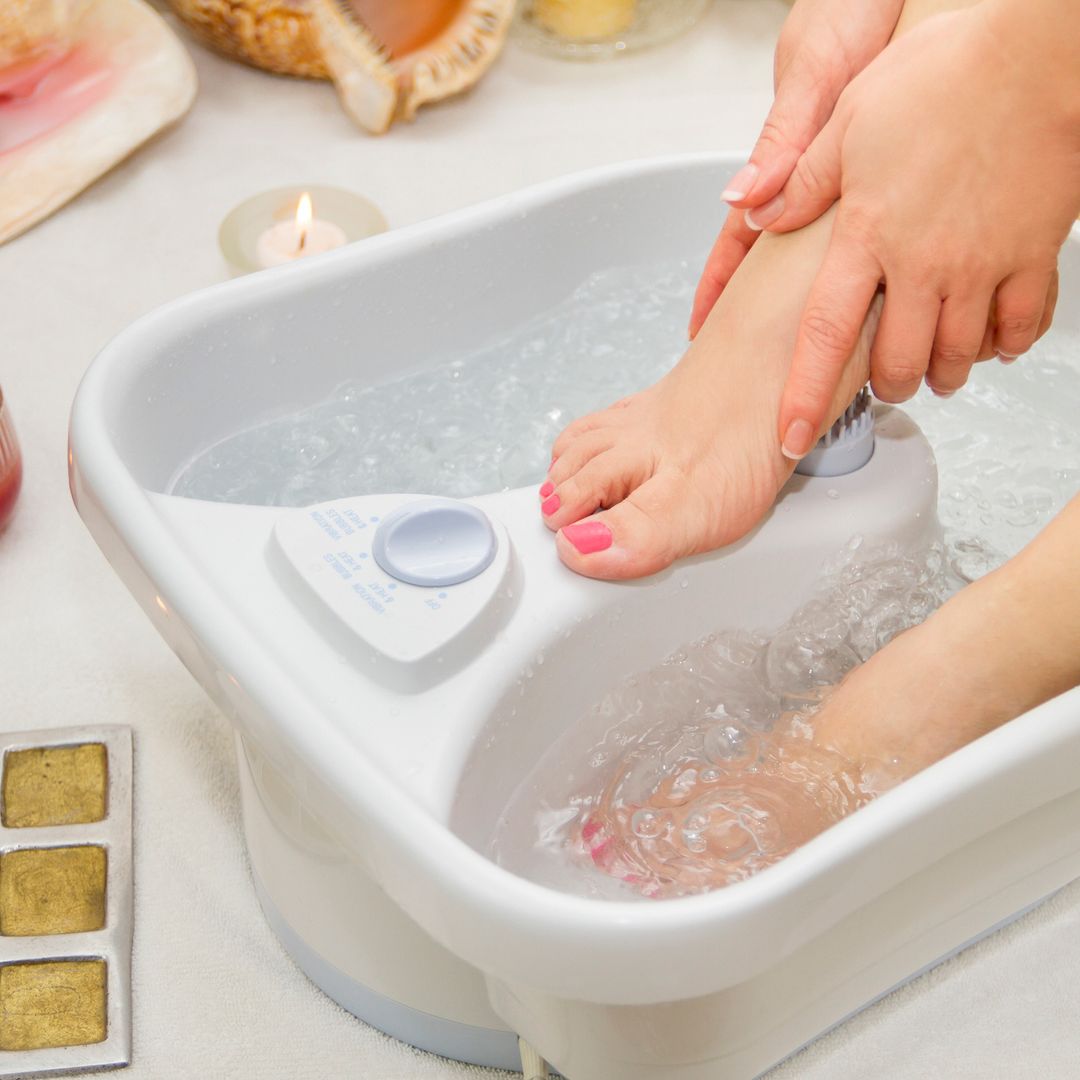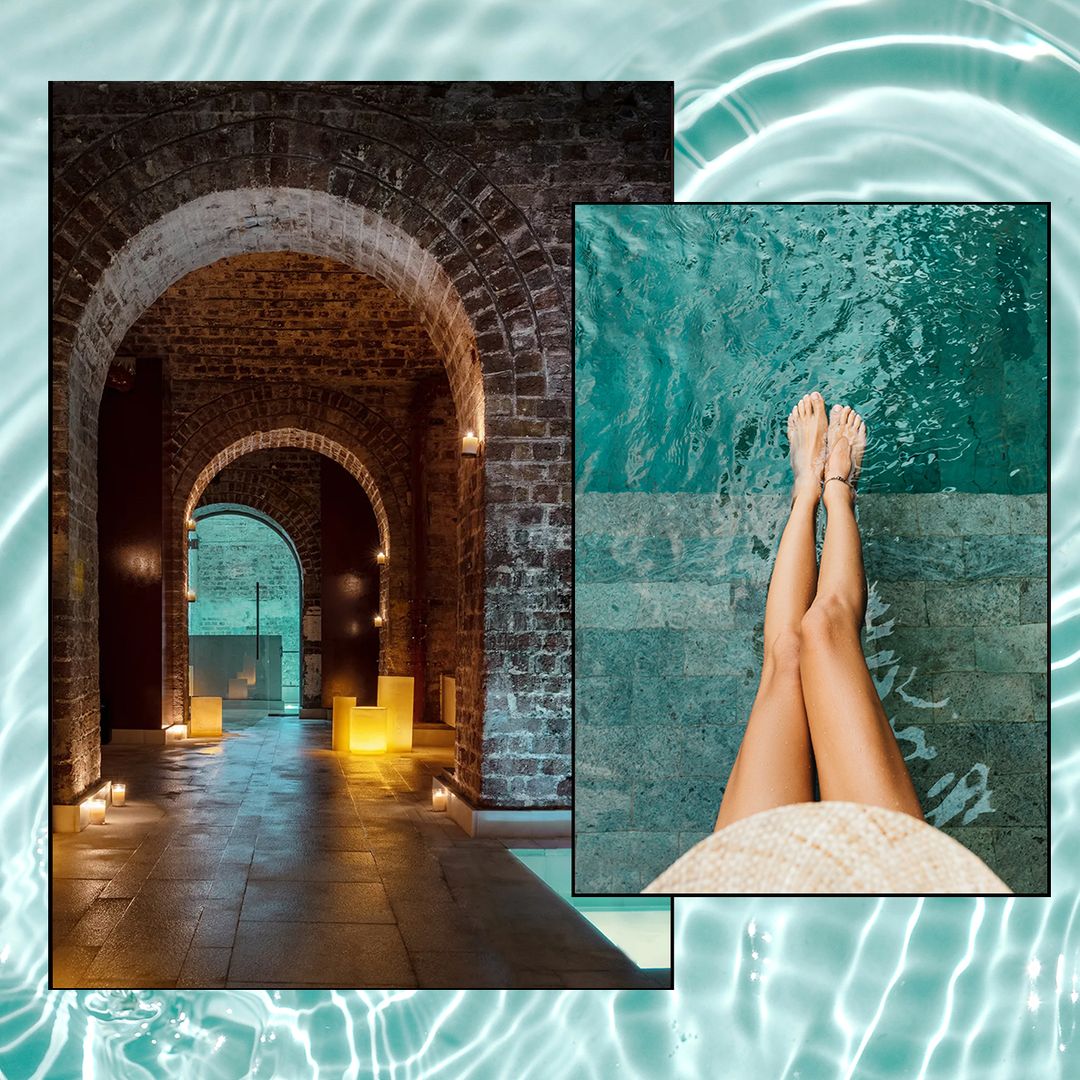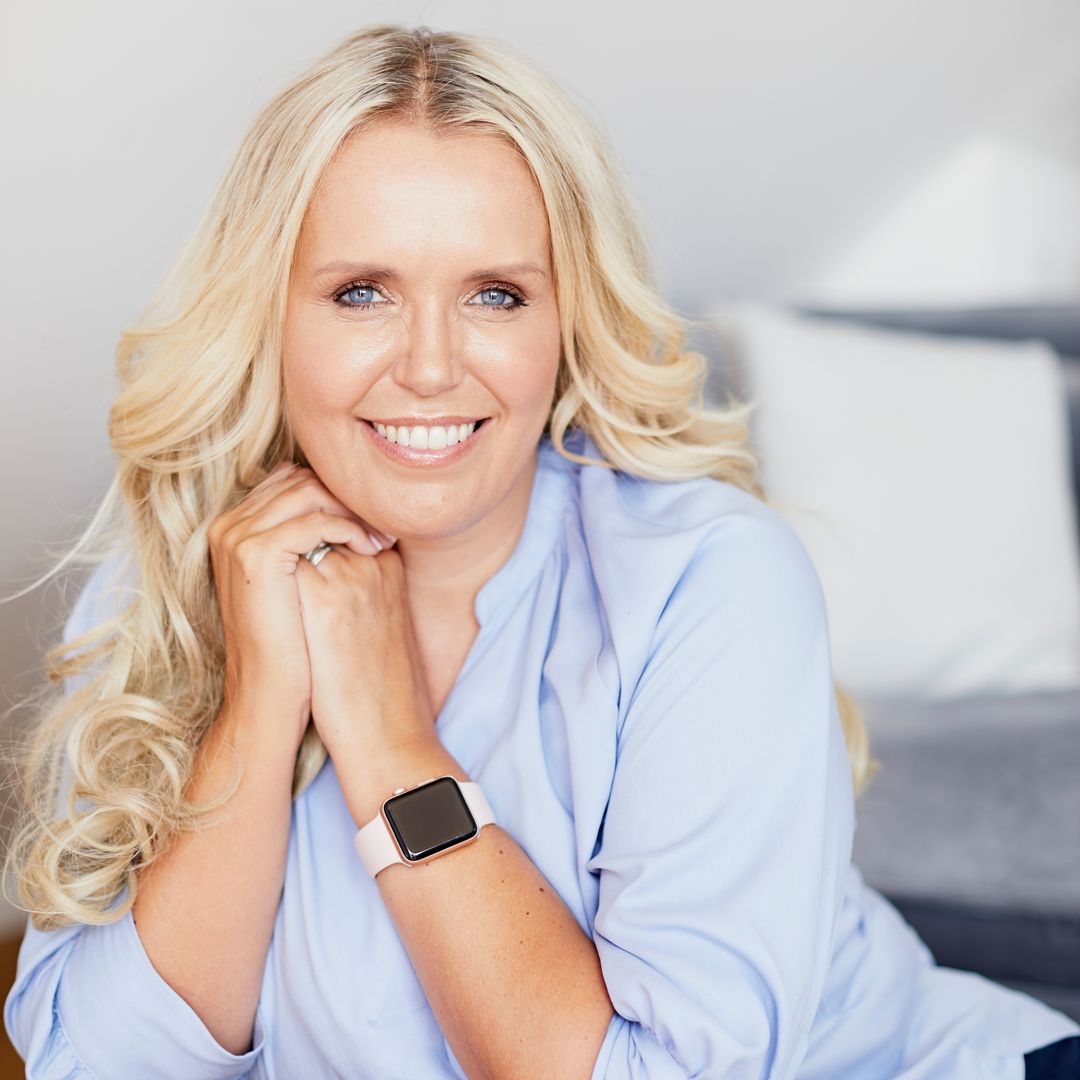Over the years, I've had one aim when it comes to makeup: looking ‘well’. That's it. No experimenting with brightly coloured eyeliner or bold lip shades, none of that mattered.
Thanks to endometriosis and painful bladder syndrome, I've battled with fatigue, pain and a general lack of feeling my best self, especially during flare-ups. During my lowest times, I seek out a lit-from-within glow, as though it will actually make me better.
On the days when I felt the worst, the best compliment anyone could give me was, ‘You look well,’ so my beauty efforts have always been concentrated on just that.
If I can’t feel good on the inside, I do my best to look well-rested. I turn to beauty to give the illusion of wellness, because looking better helps me feel better.
DISCOVER: Can our skincare routine make us happier? An expert explains
Does how we look on the outside impact us on the inside?
Our outward appearance undoubtedly impacts how we perceive ourselves on the inside, and chronic illness can amplify this.
“For some people, how we look or how we think we look does impact how we feel,” confirms psychodermatologist Dr Alia Ahmed.
It’s something Sammy Jones, 26, who suffers from a neurological condition can relate to. “My illness has massively changed my relationship with beauty,” she explains. For Sammy, makeup used to be about getting glam and going out drinking with friends but that changed when she became unwell.
“Now I use makeup as a tool to conceal how I’m feeling health-wise, whether that’s my tired eyes, pale skin or uneven texture,” she says.
RELATED: When I can't face the world, my beauty routine helps pick me back up
I wholeheartedly relate. When I’m not feeling 100% physically and mentally, a touch of concealer or a layer of Isle of Paradise fake tan can trick both my brain and other people into thinking I’m well.
This isn’t uncommon. “Having a chronic illness can affect both mental and physical health and change the way you previously viewed yourself,” says Dr Paul Banwell plastic and cosmetic surgeon.
Dr Ash Soni, reconstructive plastic surgeon and owner of The Soni Clinic notes that for his patients with chronic illnesses, their goals are to look ‘as fresh and healthy as possible.’
Our appearance is something we can control
There is a large element of loss of control when it comes to chronic illness and this is why many of us focus on taking hold of things we can control during these times.
One of the easiest and — for the most part — safest ways is through beauty. Whether that be with playful makeup, or in my case, the pursuit of wellness through facials, skincare and supplements.
Sammy agrees. “Although I might not be able to control how I feel or my symptoms, I love a bubble bath, washing my hair, and putting a face mask on, as a reset. I try to do it at least once a week and it makes a world of difference.”
READ: My beauty routine helps clear the cloud of depression — but it’s not always easy
For her recent urostomy surgery, Sammy noted that she made time for grooming, not because anyone will see her, but “because it makes me feel better and in control of the situation.”
“Looking fresh psychologically benefits us,” confirms Dr. Soni. “Naturally, we feel better about ourselves and it takes our focus away from feeling unwell.”
In fact, focusing on elements in our lives we can control is encouraged for most people. When it comes to beauty, this isn’t just experimenting with vibrant colours, it’s more subtle than that. Playing around with minimalist complexion products and barely noticeable treatments has become the norm.
So much so that it fools both those around us (and sometimes ourselves, momentarily) that we’re as well as we appear. “I’m seeing a huge movement towards total wellbeing and treatments to improve confidence and self-esteem to ‘look healthy’”, says Dr. Banwell.
This can also include taking supplements, booking in for certain treatments and performing skincare regimens at home.
Unconscious bias and outside the perception of illness
Those who are chronically ill, especially those experiencing flare-ups of the conditions, understand all too well the negative impact comments about appearance can have.
People noting how tired or pale or sad we look can result in working overtime using makeup and skincare to look as well as possible.
“I have a massive issue with people making comments on personal appearance because this is another way of building on unconscious bias,” says Dr Ahmed.
“Telling someone, ‘you look tired,’ can make a person even more conscious. Instead, you can show concern by asking ‘Do you want a cup of tea?’ or ‘Do want to get lunch today?’ rather than making an appearance-related comment, as it can become a deep-seated issue in someone’s mind,” Dr Ahmed explains.
Does looking better make us feel better?
There’s nothing wrong with wanting to feel fresher-faced and comfortable in your own skin, but we need to be careful not to become fixated. Issues can arise when thoughts and actions surrounding our appearance become obsessive.
This is where many clinics call on the help of expert psychologists to help unpick clients’ reasons for treatments and decide when refusing treatment is the best option.
Dr. Banwell was one of the first plastic surgeons in the UK to offer on-site psychological services. He believes in a 360 approach to wellness with holistic lifestyle changes, including mental health help, supplements, life coaches, dietitians, personal trainers and massage therapists to address the individual needs of each patient; recognising that some need more than a single treatment to help.
Surgeons such as Dr Soni take consultations seriously, never rushing a patient and taking time to decide whether a treatment is truly suitable for them.
As for me, I know I can turn to beauty for that little extra boost next time I’m in the midst of a flare up. Sure, it’s not going to fix the problem but if it makes me feel even the tiniest bit better, I’m all for it.
